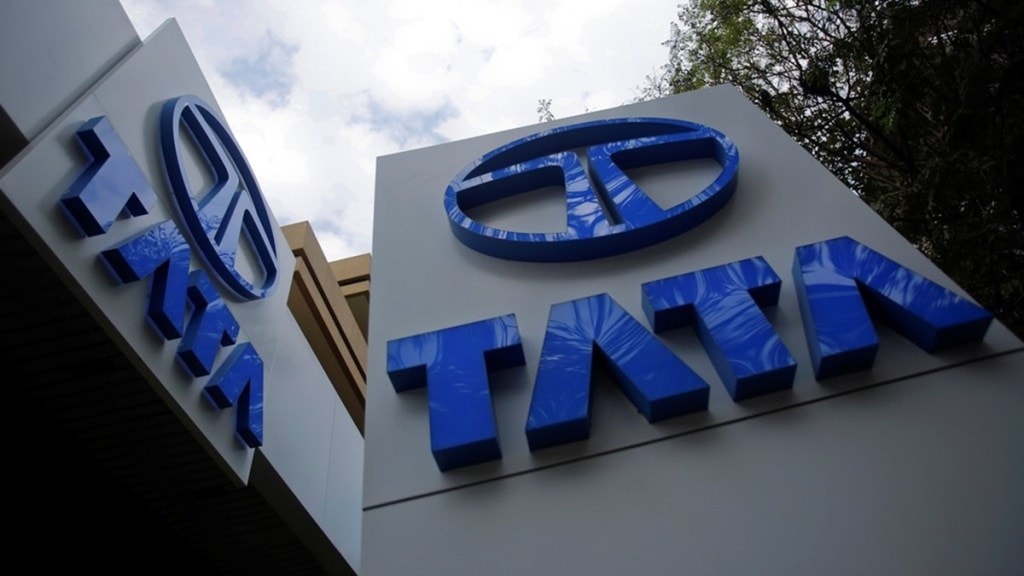Weighed down by contracting margins at Jaguar Land Rover (JLR), due to the full quarter impact of US tariffs, parent Tata Motors reported a 30.5% year-on-year (y-o-y) fall in consolidated net profit to Rs 3,924 crore in the first quarter ended June. The profit marginally missing the Bloomberg consensus estimate of Rs 3,972 crore.
Tata Motors’ revenue from operations also declined 2.5% y-o-y to Rs 1.04 lakh crore as compared to Rs 1.07 lakh crore during the same period last year. The revenue came in higher than the estimate of Rs 1.01 lakh crore.
The company’s Ebitda fell 39.2% y-o-y to Rs 10,224 crore, while the Ebitda margin slipped 480 basis points to 9.2%. The automaker attributed the soft performance during the quarter to volume decline in all businesses and a drop in profitability, primarily at JLR.
JLR wholesale volumes during the quarter were down 10.7% y-o-y 87,300 units, while revenue at £6.6 billion was down 9.2%, affected by US tariffs. Its Ebit margins were down 490 basis points at 4%. The company, however, maintained margin guidance of 5-7% for the full fiscal. It said that the impact of US tariffs on JLR business amounted to around £250 million during the quarter.
PB Balaji, group chief financial officer, Tata Motors, said, “Despite stiff macro headwinds, the business delivered a profitable quarter, supported by strong fundamentals. As tariff clarity emerges and festive demand picks up, we are aiming to accelerate performance and rebuild momentum across the portfolio. Against the backdrop of the upcoming demerger in October 2025, our focus remains firmly on delivering a strong second-half performance.”
Commercial vehicles under pressure, but margins improve
The commercial vehicles division of Tata Motors saw a 6% fall in wholesale volume to 88,100 units. However, despite a 4.7% y-o-y fall in revenue, Ebitda margin for the segment improved 60 basis points to 12.2%.
Girish Wagh, executive director, Tata Motors, said that the first quarter of the fiscal was a challenging time for the commercial vehicles industry owing to subdued demand across key segments.
“We also witnessed a decline in domestic sales volumes, reflecting broader market softness and delayed fleet replacement cycles, while segments like buses and vans showed resilience and our international business delivered growth,” he said, adding that despite adverse volumes, the business delivered healthy ROCE of around 40%.
On the recently announced acquisition of IVECO Group, Wagh called it a strategic leap forward in the carmaker’s ambition to build a future-ready commercial vehicle ecosystem.
EV sales slip; recovery signs in June-July bookings
EV volumes under Tata Motors’ passenger vehicle (PV) business saw a 2.1% y-o-y decline at 16,200 units. Over all PV volumes were down 10.2% annually at 124,800 units.
Revenue for the segment was down 8.2% y-o-y at Rs 10,900 crore, while Ebitda margins were down 180 basis points at 4%. The company claimed a market share of 12.3% in the PV segment, based on Vahan data.
Shailesh Chandra, managing director, Tata Motors Passenger Vehicles and Tata Passenger Electric Mobility, said, “Demand softness weighed on overall performance, although the electric vehicle category remained a bright spot, supported by new launches and growing customer interest.”
He added that softness in the quarterly performance was driven by volume pressures persisting across most segments. However, the firm is optimistic about the segment’s performance in Q2, having witnessed tailwinds in June in the form of 22% increase in bookings for Tiago and Altroz models and registering highest-ever monthly sales in July.
Free cash flow (automotive) for the quarter was at (-)Rs 12,300 crore primarily on account of adverse working capital due to seasonality and tariffs, the firm said.
Net automotive debt was at Rs 13,500 crore (including leases of Rs 9,500 crore).
Tata Motors said it anticipates the demand situation likely to remain challenging and will continue to focus on strengthening the business fundamentals and mitigate the impact of tariffs by leveraging the brand strength to drive a better mix, and targeted actions to improve contribution margins.
It added that the NCLT in the final hearing for the scheme of demerger on August 8 reserved the order. It aims to complete the current quarter with October 1 being the effective date.

